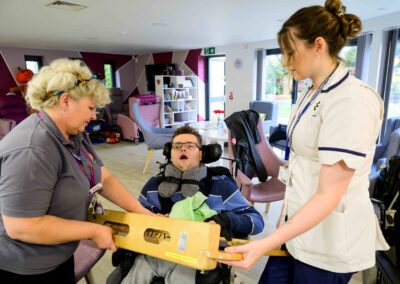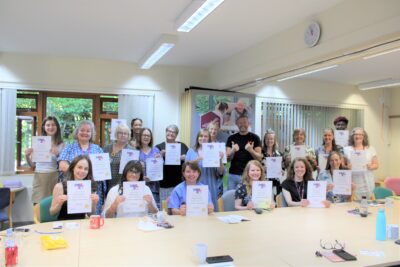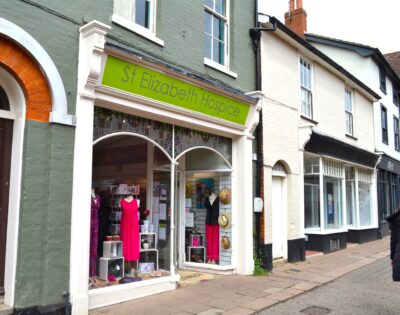Compassionate Communities – What matters most at the end of life?
In the first of a new monthly column, Dr Joe Sawyer, an Academic Clinical Fellow in Palliative Care, provides an update on the fantastic Compassionate Communities’ activities taking place in East Suffolk.
Death comes to us all at some stage. The idea of dying often fills people with fear and sadness, yet death can also bring companionship, courage, strength, love and compassion.
Death can occur in many ways and at different times in our lives, yet how it is experienced is often shaped by relationships made during the process of dying and grieving. Commonly, people associate the responsibility for caring relationships at the end-of-life with doctors, nurses and other professionals.
Whilst such people have an important role, the reality is when someone is dying, most their time is spent alone, with friends and family or in the company of the TV or radio. Here relationships with people, places and often animal companions can matter hugely and even define how we experience death. Such spaces exist within, and are created by the local community.
As we open up our social spaces again, following a difficult year away, think back to social interactions that are so common to everyday life and how much a simple act of kindness or compassion can mean for someone dealing with serious illness or loss. Imagine the possibilities when such interactions are part of the fabric of the whole community.
It is time to recognise these often overlooked interactions as not just simple acts of kindness but as the driving force to how we experience serious illness, dying, caregiving and loss.
In this way, caring relationships are not merely the remit of healthcare professionals but the responsibility of the community. Such an idea is growing and has led to Ipswich and Felixstowe joining the ‘Compassionate Community’ initiative facilitated by St Elizabeth Hospice.
Through this there will be many activities and events promoting the work your community does in caring for people at the end-of-life. Over the coming months I will highlight the work of these groups in the hope many of you will feel inspired and validated in the amazing work being done.
The first of which is The Hope Trust, in Felixstowe, which runs a twice yearly 4-week bereavement support group for adults of any age. This is not counselling, but a chance to explore grief as it is being experienced, with others, in a safe and compassionate space.
There is a chance to find out about the next course on 2nd October, with the actual 4-week course starting on 11th October, for more information visit www.hopetrust.org.uk or call 01394 272592.
Learn more about The Hope Trust by visiting www.stelizabethhospice.org.uk/compassion/your-stories-sheila-taylor/ to read the story of Shelia Taylor who is a pastoral worker for the Felixstowe charity.



